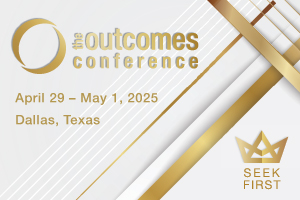
Power By Dr. Brian S. Simmons

Power for Good Versus Power for Abuse
“Now all glory to God, who is able through His mighty power at work within us to accomplish infinitely more than we might ask or think. Glory to Him in the church and in Christ Jesus through all generations forever and ever, Amen!”
Ephesians 3:20-21
God is all-powerful! So, there is no lack of power available to God’s Stewards.
“Power, O God, belongs to you.”
Psalm 62:11
“… our great power is from God, not from ourselves” (I Corinthians 4:7). And, “It is God who enables us…” (I Corinthians 1:21). Steward leaders are entrusted by God with time, treasure, talent and relationships. How the steward leader uses these gifts involves power. The goal of the faithful steward leader is to put service over self-interest as he seeks to fulfill the purposes of the Master, God, for all He has so graciously entrusted to the steward’s care. Steward leaders seek to move others onto God’s agenda in pursuit of His purposes for the organizations they lead.
God enables the good work of His faithful steward leaders. Sometimes, however, He steps in and does only what He can do. We call these actions miracles!
What we do as leaders and how we do what we do both matter to God. Some leaders mistakenly believe that the end justifies the means. But both ends and means matter. Faithful stewards know that how they do what they do can be more important than what they do!
In 1959, John R.P. French and Bertram Raven conducted a groundbreaking study of power. Simply put, power is a tool leaders use to accomplish ends. French and Raven found that power can be divided into five separate and distinct forms. The bases of power they discovered are coercive, reward, legitimate, referent, and expert.
A few questions immediately arise concerning the use of power by spiritual leaders seeking to move others onto God’s agenda. Among these questions are: What forms of power are best and most effective, and is there any form of power that the faithful steward leader should never use?
Coercive Power
I know of an organization CEO who acts as he submits to the guidance of his board of directors and top executives in the company he leads but behind the scenes manipulates, stiffs arms, and threatens others in the organization. Coercion is persuading someone to do something against their will or better judgment using force or threats. This leader threatened two different board members that if they didn’t refrain from expressing opinions in board meetings differing from his own, he would remove them from the board! How a CEO could act on this threat is a post for another day.
A threat is a statement of intention to inflict pain, injury, damage, or other hostile action on someone in retribution for something done or not done. This is an exercise in raw, coercive power, and a Christian leader should never use this form of control. When asked by a board member how a leader perceived most to be a godly leader could regularly act in such secular (apart from God) ways, the board member responded, “It’s a dilemma!” Leaders who abuse power in this way put self-interest over service. Faithful stewards put service over self-interest, so this abuse of power is the opposite of how a spiritual leader should lead and is always wrong.
Reward
Anyone who influences another is a leader. As Creator, the Lord alone retains the prerogative for how much or how little He chooses to entrust to the care of his stewards. Some entrusted with much wield great opportunity to faithfully give out rewards in a manner that is aligned with the purposes of the Master, God. This way, rewards for a well-done job can be a tremendous blessing for the generous leader and his followers.
Leaders use reward power when they exchange financial incentives or other gifts to persuade followers to abide by their demands and wishes. This can be very manipulative. Manipulative behavior is when people use controlling behavior to conceal their true intentions. Again, the leader who manipulates others behind the scenes often does so to put personal self-interest over service to God and others.
Power is influence. Wealthy leaders are constantly tempted to use rewards for personal influence and gain rather than to further the mission and achieve the vision of their organizations. Sometimes, the wealth is personal wealth, while at other times, the resources belong to the organization the person leads. In either case, giving in to this temptation is always wrong.
The difference between faithful steward leaders and the other kind is the attitude of the heart. In other words, use versus abuse of reward power determines why the leader does what he does.
Legitimate Power
Every leader in a position of authority has been placed in his position by God. The power accompanying these positions of influence can be used or abused.
Faithful steward leaders do not abuse the privileges of their position. They always look to fulfill the purposes of the Master via the positions entrusted to their care. They realize that their positions are gifts entrusted to them by God instead of being earned or deserved. Nebuchadnezzar learned through experience that the Most High rules over the world’s kingdoms and gives them to whomever He pleases!
Abuse looks like using position power to force others in the organization to follow the leader’s wishes. I know of a senior leader who regularly reminds others of his title to remind colleagues of his power to make life difficult and strengthen personal power and influence over those this leader led. He would say, “And when will the title be made aware of this?” Or “You need to learn to think like I think.” What hubris! Again, this abuse of power puts service over self-interest and is the opposite of faithful steward leadership.
####
Dr. Brian S. Simmons is the director of the PhD in Organizational Leadership degree program, professor, and PhD student mentor at Columbia International University. He exists as a visionary builder to further the kingdom of God through Christian education, teaching, and influencing others.

Check out this month’s featured Leader2Leader Podcast in audio and video versions. This month, Rich Stearns discussed leading as one who is fully persuaded!
WATCH | LISTEN
Thanks to FaithSearch Partners for the support and sponsorship of this podcast!




